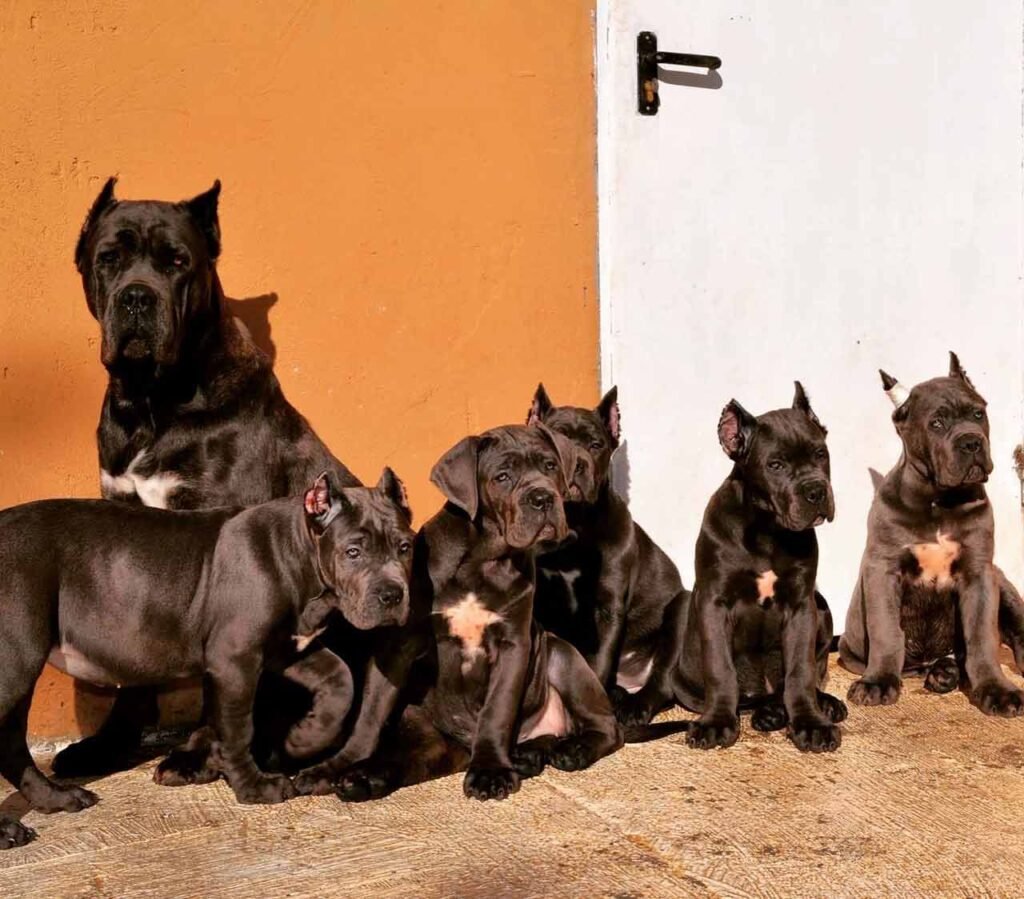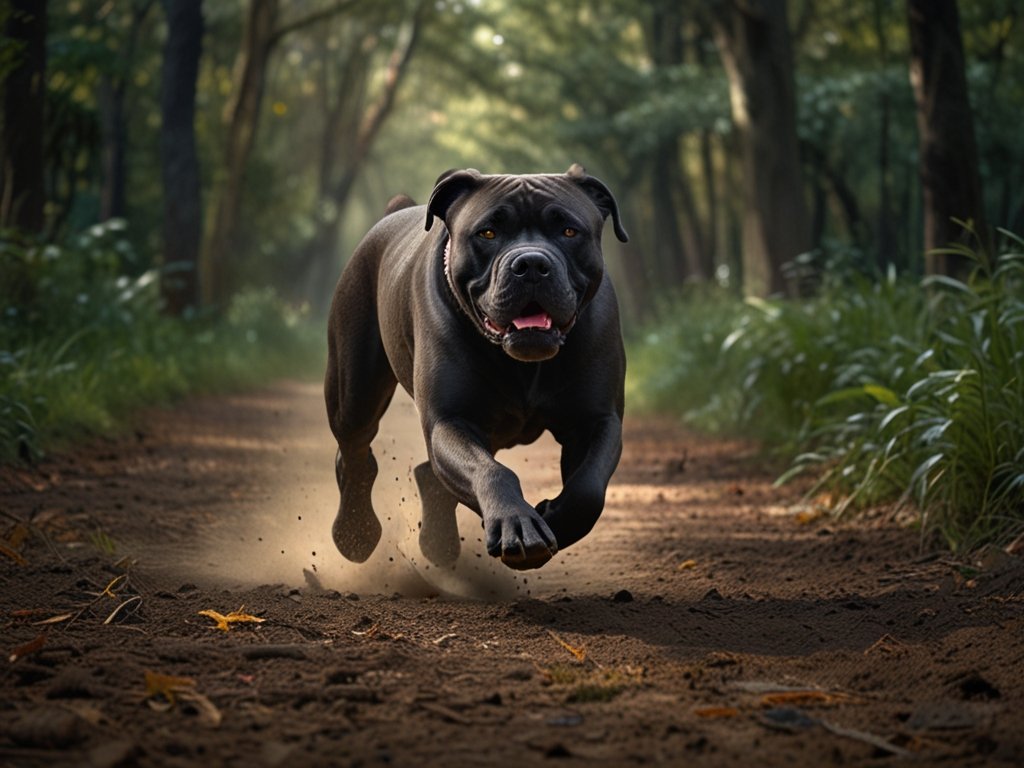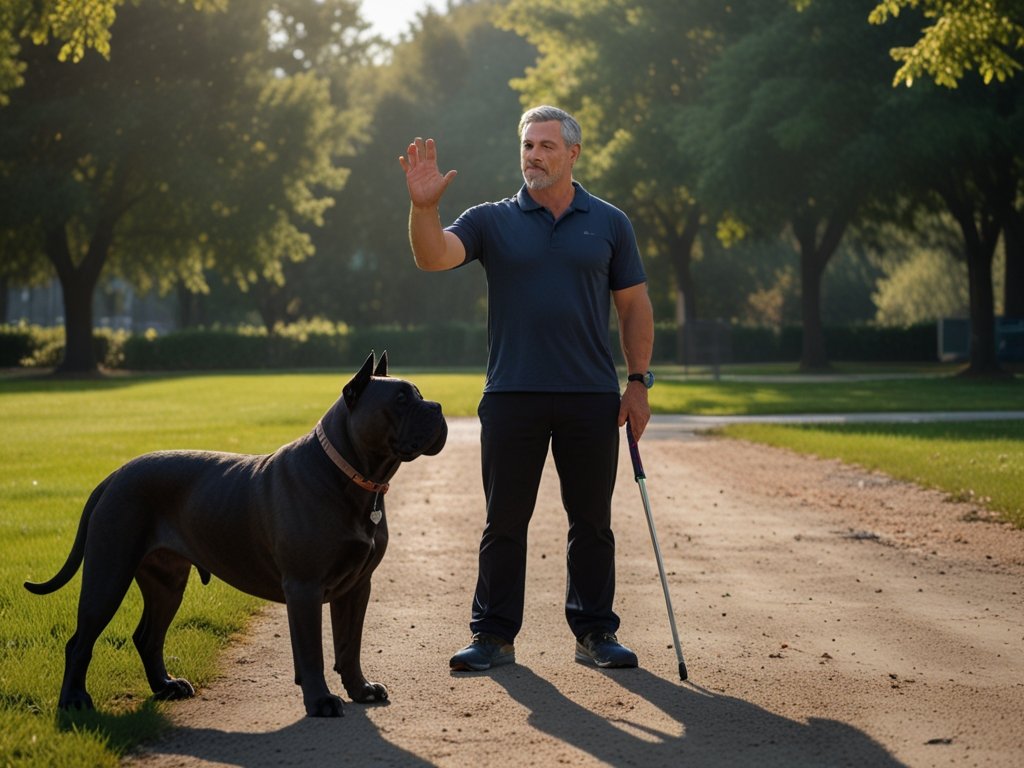Training a Cane Corso can be a rewarding experience, but it's not without its challenges. In this comprehensive guide to Cane Corso training mistakes to avoid, we'll explore common pitfalls that many owners encounter and provide expert solutions to ensure your training journey is successful. Whether you're a first-time Cane Corso owner or looking to refine your approach, you're in the right place to learn how to sidestep typical errors and achieve optimal results in training your powerful and intelligent companion.
Understanding the Cane Corso Temperament
Before diving into specific training mistakes, it's crucial to understand the unique temperament of the Cane Corso breed. This knowledge forms the foundation for effective training and helps prevent many common errors.

Misinterpreting Cane Corso Natural Instincts
Cane Corsos have strong natural instincts that can be misunderstood:
- Protective nature: Often mistaken for aggression
- Aloofness with strangers: Can be seen as unfriendliness
- High prey drive: May be interpreted as disobedience
Key Mistake: Trying to suppress these instincts rather than channeling them positively.
Solution: Work with your Cane Corso's natural traits. For example, use their protective instincts to teach them to "guard" on command, rather than trying to eliminate the behavior entirely.
Overlooking the Importance of Early Socialization
Proper socialization is crucial for Cane Corsos:
- Exposure period: The critical window is between 3-16 weeks
- Varied experiences: Introduce your puppy to different people, animals, and environments
- Positive associations: Ensure all new experiences are pleasant
Common Error: Waiting too long to start socialization or limiting exposure due to overprotectiveness.
Correct Approach: Begin socialization early and continue throughout your dog's life. Create positive experiences with a wide variety of stimuli to build a confident, well-adjusted Cane Corso.
Underestimating the Breed's Intelligence and Need for Mental Stimulation
Cane Corsos are highly intelligent dogs that require mental engagement:
- Problem-solving abilities: They excel at figuring out puzzles and complex tasks
- Boredom-related issues: Without mental stimulation, they may develop destructive behaviors
- Training potential: They can learn a wide variety of commands and tasks
Frequent Mistake: Focusing solely on physical exercise and neglecting mental stimulation.
Better Strategy: Incorporate puzzle toys, training sessions, and interactive games into your Cane Corso's daily routine. This will keep their mind sharp and prevent boredom-related behavioral issues.
Common Mistakes in Basic Obedience Training
Establishing a strong foundation in basic obedience is crucial for Cane Corsos. Let's explore some common mistakes in this area and how to avoid them.

Inconsistency in Command Usage and Enforcement
Consistency is key when training a Cane Corso:
- Varying commands: Using different words for the same action
- Inconsistent enforcement: Sometimes allowing behaviors, other times correcting them
- Family member discrepancies: Different family members using different rules
Why It's a Problem: Inconsistency confuses your Cane Corso and slows down the learning process.
Best Practice:
- Choose specific words for each command and stick to them
- Enforce rules consistently every time
- Ensure all family members are on the same page with training methods and rules
Relying Too Heavily on Treats for Motivation
While treats can be effective, overreliance can lead to issues:
- Treat dependency: Dog only responds when treats are visible
- Overfeeding: Can lead to weight issues
- Lack of intrinsic motivation: Dog doesn't learn to obey for the sake of pleasing you
How to Fix It:
- Use a variety of rewards (praise, play, petting)
- Gradually reduce treat frequency as behaviors become established
- Implement a variable reward schedule to maintain interest
Remember, your Cane Corso should be eager to please you, not just work for treats.
Neglecting to Establish Clear Leadership
Cane Corsos respect clear, confident leadership:
- Lack of structure: Failing to set clear rules and boundaries
- Inconsistent hierarchy: Allowing the dog to make decisions that should be made by the owner
- Overly permissive behavior: Letting the dog get away with undesirable actions
Why It Matters: Without clear leadership, Cane Corsos may become stubborn, dominant, or anxious.
Correct Approach:
- Set clear rules and boundaries from the start
- Use the "Nothing in Life is Free" approach - require your dog to work for rewards
- Provide confident, calm leadership in all interactions
Proper socialization is crucial for developing a well-rounded Cane Corso. Let's examine some common mistakes in this area.

Insufficient Exposure to Various Environments and Stimuli
Many owners underestimate the importance of diverse experiences:
- Limited environments: Only exposing the dog to home and immediate neighborhood
- Lack of novel stimuli: Not introducing new sights, sounds, and textures
- Avoiding challenging situations: Shielding the dog from potentially stressful experiences
The Problem: This can lead to a fearful or reactive Cane Corso in unfamiliar situations.
Solution:
- Create a socialization checklist covering various environments, people, animals, and stimuli
- Gradually expose your Cane Corso to new experiences in a positive, controlled manner
- Use treats and praise to create positive associations with new experiences
Improper Introduction to Other Dogs and People
Mistakes in this area can lead to long-term behavioral issues:
- Forced interactions: Pushing the dog to greet when they're uncomfortable
- Lack of control: Allowing overly excited or aggressive greetings
- Inconsistent socialization: Socializing intensively as a puppy but stopping in adulthood
How to Correct:
- Always allow your Cane Corso to approach others at their own pace
- Teach and enforce calm greetings
- Continue socialization throughout your dog's life
Remember, quality of interactions is more important than quantity.
Overlooking the Critical Socialization Window
The period between 3-16 weeks is crucial for a Cane Corso's development:
- Delayed start: Waiting too long to begin socialization
- Overprotection: Keeping the puppy isolated due to health concerns
- Rushed process: Trying to cram too many experiences into a short period
Why It's Crucial: This period shapes your Cane Corso's future responses to the world around them.
Best Practice:
- Start socialization as early as 3 weeks (under breeder's guidance)
- Balance safety with exposure (consult your vet for safe socialization before full vaccination)
- Create a gradual, positive socialization plan covering the entire critical period
Physical Exercise Missteps
While Cane Corsos need plenty of exercise, there are several common mistakes owners make in this area.

Overexercising Young Cane Corsos
Puppies and young dogs are still developing:
- Forced running: Making puppies jog or run for extended periods
- High-impact activities: Engaging in jumping or agility too early
- Ignoring fatigue signs: Pushing the puppy beyond their limits
The Risk: This can lead to joint problems, growth issues, and potential long-term health complications.
Correct Approach:
- Follow the 5-minute rule: 5 minutes of exercise per month of age, twice daily
- Focus on low-impact activities like swimming for young Cane Corsos
- Allow plenty of rest and recovery time between exercise sessions
Underestimating Adult Exercise Needs
Adult Cane Corsos require significant physical activity:
- Insufficient duration: Not providing enough exercise time
- Lack of variety: Relying solely on walks for exercise
- Inconsistent schedule: Exercising sporadically rather than daily
Why It's a Problem: Underexercised Cane Corsos may develop behavioral issues due to pent-up energy.
Solution:
- Aim for 1-2 hours of exercise daily for adult Cane Corsos
- Incorporate a mix of activities: walks, runs, swimming, fetch
- Establish a consistent daily exercise routine
Neglecting Mental Exercise in Favor of Physical Activity
Cane Corsos need mental stimulation as much as physical exercise:
- Overemphasis on physical tiredness: Assuming a physically tired dog is a well-exercised dog
- Lack of problem-solving opportunities: Not providing mental challenges
- Ignoring breed-specific needs: Forgetting that Cane Corsos were bred for more than just physical tasks
How to Address This:
- Incorporate training sessions into exercise time
- Use puzzle toys and scent work to engage your dog's mind
- Teach new tricks or participate in dog sports that challenge both mind and body
Remember, a mentally stimulated Cane Corso is often calmer and more well-behaved than one who's just physically tired.
Behavioral Training Blunders
Addressing behavioral issues in Cane Corsos requires a nuanced approach. Let's explore some common mistakes in this area.
Mishandling Aggression or Protective Instincts
Cane Corsos have natural protective instincts that can be mismanaged:
- Encouraging aggression: Praising the dog for aggressive displays
- Punishing warnings: Scolding the dog for growling, potentially leading to bites without warning
- Failing to identify triggers: Not recognizing what causes protective or aggressive responses
The Danger: Mishandling these instincts can lead to an unpredictable or dangerously aggressive dog.
Correct Approach:
- Properly socialize your Cane Corso to reduce fear-based aggression
- Teach and reward calm, neutral behavior in potentially triggering situations
- Consult a professional trainer if aggression issues persist
Failing to Address Separation Anxiety
Cane Corsos can develop strong attachments to their families:
- Overdependence: Always having the dog by your side
- Dramatic departures/arrivals: Making a big fuss when leaving or returning home
- Lack of alone training: Never teaching the dog to be comfortable alone
Why It's Problematic: This can lead to destructive behaviors, excessive barking, and stress for both dog and owner.
How to Correct:
- Gradually accustom your Cane Corso to being alone, starting with very short periods
- Create positive associations with your departure (e.g., leaving a stuffed Kong toy)
- Keep departures and arrivals low-key to avoid reinforcing anxiety
Inconsistent or Ineffective Correction Techniques
Proper correction is crucial for shaping good behavior:
- Delayed corrections: Addressing the behavior too late for the dog to make the connection
- Inconsistent responses: Sometimes correcting, sometimes ignoring the same behavior
- Overly harsh corrections: Using punishment that's too severe for the infraction
The Issue: This can lead to confusion, anxiety, or a breakdown in the trust between you and your Cane Corso.
Best Practices:
- Correct immediately and consistently
- Use positive reinforcement more often than punishment
- Ensure corrections are appropriate to the situation and your dog's temperament
Remember, the goal is to guide your Cane Corso's behavior, not to intimidate or frighten them.
Advanced Training Errors
As your Cane Corso progresses in training, be aware of these common advanced training mistakes.

Rushing into Off-Leash Training
Off-leash reliability is crucial for Cane Corsos, but it's often rushed:
- Premature freedom: Allowing off-leash time before solid recall is established
- Overestimating obedience: Assuming on-leash obedience translates directly to off-leash reliability
- Neglecting distraction training: Not proofing commands in various environments with distractions
Why It's Risky: A Cane Corso without reliable off-leash control can be a danger to themselves and others.
Correct Approach:
- Establish rock-solid recall before attempting off-leash training
- Use a long line to practice "off-leash" skills safely
- Gradually increase distractions and distance in controlled environments
Neglecting Ongoing Training Throughout Adulthood
Many owners slack off on training once their Cane Corso reaches adulthood:
- Assuming learning is complete: Thinking that adult dogs don't need continued training
- Lack of mental stimulation: Not providing ongoing learning opportunities
- Failure to reinforce: Not maintaining learned behaviors through regular practice
The Problem: This can lead to regression in training and a less mentally stimulated, potentially bored Cane Corso.
Solution:
- Continue regular training sessions throughout your dog's life
- Introduce new tricks or skills to keep learning fresh and engaging
- Regularly practice and reinforce known commands in various situations
Improper Use of Training Tools and Equipment
Misuse of training tools can hinder progress or even cause harm:
- Overreliance on tools: Using tools like prong collars or e-collars as a shortcut rather than a training aid
- Incorrect application: Not properly fitting or using training equipment
- Failure to phase out: Relying on training tools indefinitely instead of transitioning to natural obedience
How to Avoid These Mistakes:
- Understand the proper use and purpose of any training tool before using it
- Consider tools as temporary aids, not permanent solutions
- Focus on positive reinforcement and natural obedience as the primary training methods
Always prioritize your Cane Corso's well-being and comfort when considering any training tool.
Creating a Supportive Training Environment
The environment in which you train your Cane Corso plays a crucial role in their success. Let's examine some common mistakes in this area.
Failing to Involve All Family Members in Training
Consistency across all family members is key:
- Conflicting commands: Different family members using different cues for the same behavior
- Inconsistent rules: Some family members enforcing rules while others don't
- Unequal participation: Only one person taking responsibility for training
Why It's a Problem: This leads to confusion for your Cane Corso and inconsistent behavior.
Solution:
- Hold family meetings to agree on training methods, commands, and rules
- Encourage all family members to participate in training sessions
- Create a chart or guide for consistent command usage and rule enforcement
Overlooking the Impact of Home Environment on Behavior
Your home setup can significantly affect your Cane Corso's behavior:
- Lack of structure: Not having designated areas for eating, sleeping, and play
- Overstimulating environment: Too much noise or activity without a calm space
- Insufficient mental stimulation: Not providing enough engaging toys or activities
How to Address This:
- Create a structured environment with clear boundaries
- Provide a quiet, comfortable space for your Cane Corso to retreat when needed
- Rotate toys and introduce puzzle feeders to keep your dog mentally engaged
Not Seeking Professional Help When Needed
Sometimes, owners struggle longer than necessary before seeking help:
- Overestimating abilities: Trying to handle serious behavioral issues without expert guidance
- Embarrassment: Feeling ashamed to admit training difficulties
- Delay in addressing problems: Hoping issues will resolve themselves over time
Why It's Crucial: Professional trainers can provide invaluable insight and techniques, especially for challenging cases.
Best Practice:
- Don't hesitate to consult a professional trainer familiar with Cane Corsos if you're facing persistent issues
- Consider group classes for socialization and learning in a controlled environment
- Stay open to learning new techniques and approaches from experts
Remember, seeking help is a sign of responsible ownership, not failure.
Remember, seeking help is a sign of responsible ownership, not failure.

Avoiding these common Cane Corso training mistakes can make a significant difference in your dog's behavior and your relationship with them. By understanding the unique needs of the breed, maintaining consistency in your approach, and addressing potential issues proactively, you can set your Cane Corso up for success.
Remember, every dog is unique, and what works for one may not work for another. Always be patient, observant, and willing to adjust your methods as needed. The key to successful Cane Corso training lies in your dedication, consistency, and willingness to learn and adapt.
As you embark on or continue your training journey with your Cane Corso, keep these points in mind:
- Understand your Cane Corso's unique temperament and needs
- Start training and socialization early, but continue throughout your dog's life
- Be consistent in your commands, rules, and expectations
- Balance physical exercise with mental stimulation
- Address behavioral issues promptly and appropriately
- Create a supportive home environment for training
- Don't hesitate to seek professional help when needed
By avoiding these common mistakes and following best practices, you'll be well on your way to raising a well-behaved, balanced, and happy Cane Corso. The time and effort you invest in proper training will be rewarded with a loyal, obedient, and loving companion for years to come.
Do you have any experiences or questions about training your Cane Corso? Have you encountered any of these common mistakes in your training journey? Share your thoughts in the comments below! Let's build a community of knowledgeable Cane Corso owners and help each other raise the best dogs possible.
Ready to take your Cane Corso's training to the next level? Start implementing these tips today and watch your powerful companion transform into a model of canine good behavior. Your dedication will not only improve your dog's quality of life but also strengthen the bond between you and your loyal Cane Corso.


Leave a Reply